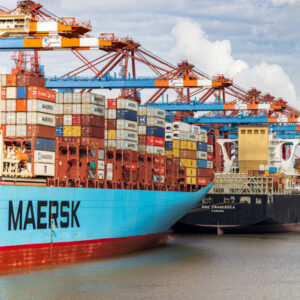It is easy to see why few people get excited about food trade. It is ‘foreign’ and about far-away lands. It’s about people making money not making things. These perceptions are misplaced. Trade matters, a lot. Globally, cross-border agrifood trade is worth $1.1 tn.
Trade expansion has been the global mantra since 1994, when food was brought into the General Agreement on Tariffs and Trade, now the World Trade Organisation. As trade networks become more complex, food standards become more politically delicate. Neo-liberals see standards as hindering trade growth. But these issues matter deeply to people. Think standards for safety, how animals are reared, what’s in the food. In almost every country, food standards are tricky politics. In 2007, China executed the head of its food and drug agency for bribes to approve untested products. No heads have rolled since the UK voted narrowly for Brexit in 2016, but concerns were immediately voiced about who and what would protect UK consumer quality standards.
What counts, as the UK found out in its disastrous mishandling of food scandals in the 1980s-90s, is public trust. In market systems, consumers must trust what they buy, or else. I have long recommended that food and farming organisations must remember that the public is the ultimate arbiter. With a zig-zagging Government (it’s got worse under Covid), just focus on the public. So I was pleased the UK’s National Farmers Union received over one million signatures for its public campaign to defend high EU food standards. Whether Brexiter or Remainer, no consumer likes to think food quality controls will worsen.
Such was the public reaction that the Government in 2020 set up a one-year Trade & Agriculture Commission (TAC1). It reported in March 2021, urging long-term monitoring. Its chair (a former chief executive of the UK Food Standards Agency and most recently a key figure in food retail giant Tesco) was so frustrated at Government inaction, despite trade deals being done without scrutiny on food standards, that he broke silence and criticised the Government in September for dereliction of duty.
Then, on 21 October, the UK Government announced a new body. So is all well with TAC2? I fear not yet.
Firstly, take membership. Four lawyers (two with corporate law links). Five people from the farming sector. Two, possibly three, trade economists (it depends how you count them). One ex-antipodean trade minister (for a ‘Brexit British’ body!). And one head of a science organisation, previously a public body, now a limited company jointly owned by Defra and outsourcing giant Capita. Members’ interests are not yet declared, so all may turn out well. Meanwhile Whitehall insiders tell me that at least some have been chosen for strongly ‘free trade’ views. A leading academic described one to me as a ‘rottweiler’. I think it was not meant as a compliment.
Governments often defend appointments by saying people are chosen for expertise. But in which sector that expertise lies is what really matters. View the new appointments and there is no-one apparently reflecting primary expertise in public (not corporate) food safety, animal welfare, food law enforcement (the nitty gritty stuff), public health, consumer perspectives, or post-farmgate food sectors. This might be a membership designed to fall at the first food scandal.
Secondly, TAC2’s function. The public concern post-Brexit is about imports. Will standards not just remain high but go higher? The UK imports 45% of its food, heavily from the EU. To win public trust, TAC2 ought to protect imports. Instead its brief so far is exports – part of the Global Britain vision. TAC2 is to sit alongside a new Food Export Council. A tightrope is being walked already. Deals have been done without scrutiny with Australia, New Zealand and now Barbados. Is the hidden message that former colonies are again to feed Britain? To gain credibility, TAC2 must be a pro-active, interventionist body, not simply reporting after the events. Select Committees should now grill Ministers on TAC2’s Terms of Reference and precisely how expertise gaps will be filled.
Thirdly, the politics are not sweet-smelling. TAC1 was about pacifying farmers, but TAC2 is risky for farm interests. They may end up being blamed by consumers and post-farmgate food interests. UK farm subsidies are being cut in three years, and there’s little attention on whether the UK is to grow more or less of its own food. Cheaper imports are sought. This return to imperial food is ridiculous in an age of climate change. Allowing environmental burdens to occur far away is not responsible governance. Circular economy loops are needed, not out-of-sight-out-of-mind tawdry trade deals. Ahead lies a deal with the USA where US authorities already make it clear they want a break from EU agrifood standards, and there’ll be no deal if the UK wrecks the Belfast Peace Agreement. Meanwhile the forthcoming EU French Presidency plans to mainstream what it calls ‘mirror measures’ i.e. the ability of the EU to require imports from non-EU countries to mirror EU standards (not just on welfare).
Who says trade standards are boring? As the UK Prime Minister might say, quis custodiet ipsos custodes (who guards the guards?). One can zig-zag in politics as much as can be got away with, but when food scandals hit, they hit.

